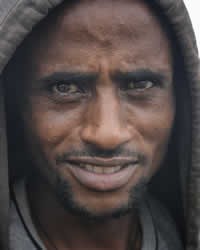Anuak in South Sudan

Photo Source:
Rod Waddington - Flickr
Creative Commons
|
Send Joshua Project a map of this people group.
|
| People Name: | Anuak |
| Country: | South Sudan |
| 10/40 Window: | No |
| Population: | 146,000 |
| World Population: | 331,800 |
| Primary Language: | Anuak |
| Primary Religion: | Ethnic Religions |
| Christian Adherents: | 10.00 % |
| Evangelicals: | 8.00 % |
| Scripture: | Complete Bible |
| Ministry Resources: | Yes |
| Jesus Film: | Yes |
| Audio Recordings: | Yes |
| People Cluster: | Nilotic |
| Affinity Bloc: | Sub-Saharan Peoples |
| Progress Level: |
|
Introduction / History
The Anywaa, or Anuak, are a river people whose villages are scattered along the banks and rivers of South Sudan and western Ethiopia. The Anuak of South Sudan live in a grassy region that is flat and virtually treeless. During the rainy season, this area becomes flooded, so that much of it becomes swampland with various channels of deep water running through it.
The Anuak speak a Nilotic language known as Anuak. Unlike other Nilotic people in the region whose economy is centered on raising cattle, the Anuak are mainly farmers. They probably have a common origin with their northern neighbors, the Shilluk. Also, they share a similar language with their neighbors to the south, the Acholi.
About 150 years ago, the Anuak occupied a large territory stretching north into South Sudan. After numerous invasions, however, they were forced further south into their present location along the Baro and Pibor Rivers.
What Are Their Lives Like?
The Anuak grow most of their own food. When the soil of a village becomes depleted, they move to a nearby fertile site to farm new ground. There is no cooperation or teamwork between villages in cultivating the land. Consequently, each village remains self-sufficient and isolated from other Anuak villages. They also fish and hunt. s
The Anuak are divided into clans. There is a strong sense of unity among clan members. Intermarriage between clans is common.
Anuak villages are thinly populated. These small, independent villages may be strung out up to twenty miles apart, oftentimes with swamps and rivers between them. Some villages are surrounded by dense reeds and are almost impossible to reach and quite difficult to attack. The sparse distribution of villages, along with the little cooperation that exists between them, makes each village a self-governing political and legal unit. This highly decentralized political system leaves each Anuak village with a strong sense of separate identity.
Every Anuak settlement has a headman who is in charge of village ceremonies and possesses the village drums and ancient Anuak relics. Villagers give him allegiance and respect by bringing him gifts of fish and meat and farming his land. If the headman loses the villagers' support by being a weak leader, he will be expelled from the village, taking nothing with him but his wives.
When an Anuak dies, he is buried either in a shaft in the center of his homestead, or underground, just a few feet from his hut. His face is covered with animal skins and the grave is enclosed by a fence. Each year, when the Anuaks harvest millet harvest and brew beer, they hold a mortuary feast in memory of all who have died during the year.
What Are Their Beliefs?
Many of the Anuak are animists (believing that non-human objects have spirits) who follow their traditional ethnic religion. They believe in an all-powerful spirit named Juok who is regarded as the creator of all things. The Anuak sacrifice animals to Juok for help when someone is sick or when someone wants revenge. The Anuak also pray directly to Juok, instead of using mediator spirits or priests to intercede for them.
The Anuak also practice divination and magic. They call upon the cijor (a type of sorcerer) to put curses on others. When elderly people are unable to avenge themselves, they hire these sorcerers.
However, they also have a strong church that has the potential to disciple many others in the ways of Jesus Christ.
What Are Their Needs?
South Sudan is a dangerous country. All peoples there need protection against both the military and rebel groups.
The full Bible was translated into the Anuak language in 2013, and many have come to Christ. Spiritually, they would greatly benefit from Christian radio broadcasts and other oral materials.
Prayer Points
Pray for justice and protection for the Anuak people in Ethiopia and South Sudan.
Pray for gospel-oriented radio broadcasts in the Anuak language.
Pray there will soon come a day when Anuak Christ followers will disciple others to make even more disciples.
Pray for them to have the spiritual hunger it takes to put Jesus Christ above all else.